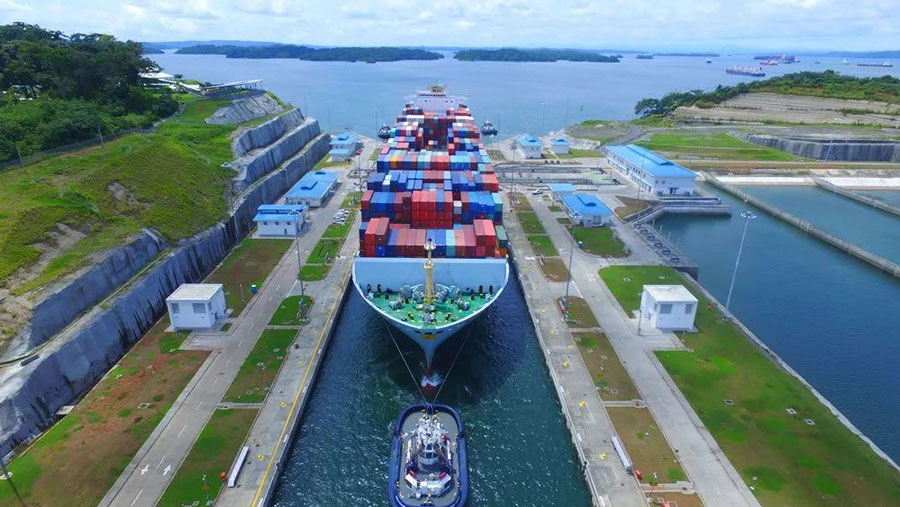

ACP: Container traffic through the Panama Canal will double in the next few years
Recently, the Panama Canal Authority announced that it expects the volume of container traffic through the Panama Canal to double in the next few years. In response to the diversion of ships due to severe drought in late 2023 and early 2024, the Panama Canal Authority is preparing to implement an $8 billion investment plan and implement water conservation strategies.
Panama Canal Authority Director Ricaurte Vasquez said that as part of the water conservation measures, the authority is encouraging shippers to consolidate cargoes to reduce the amount of water used by container ships as they pass through. In addition, the canal plans to use land on the West Bank to expand cargo transfer capacity, allowing shippers to offload containers and transfer them by rail, truck or ship to improve efficiency.
The Panama Canal Authority last month allocated about 40 percent of its maximum lock capacity for next year through the newly launched long-term berth booking system, a move that gives container ships and LNG carriers a larger share of the allocation.
Commissioner Ricaurte Vasquez mentioned that despite the lifting of drought restrictions, the number of LNG vessels passing through the canal is still lower than expected. Strong European demand for U.S. LNG, coupled with more competitive freight costs on alternative routes, has led U.S. LNG producers to prefer not to use the Panama Canal and instead use alternative routes. However, Vasquez expects Asian demand for LNG to increase next year, which could boost demand for the Panama Canal.
The Panama Canal Authority has expressed concern about trade relations between China and the United States. Vasquez said that new US President Donald Trump may impose high tariffs on Chinese goods in the future, and there may be a new trade war between China and the United States, which may have an impact on LNG trade. Vasquez stressed that energy products are an important part of the Panama Canal's business and profits, and revealed that the canal side is exploring cooperation opportunities with the Port of Houston, an important hub for U.S. goods.
Panama Canal Authority Director Ricaurte Vasquez said that as part of the water conservation measures, the authority is encouraging shippers to consolidate cargoes to reduce the amount of water used by container ships as they pass through. In addition, the canal plans to use land on the West Bank to expand cargo transfer capacity, allowing shippers to offload containers and transfer them by rail, truck or ship to improve efficiency.

The Panama Canal Authority last month allocated about 40 percent of its maximum lock capacity for next year through the newly launched long-term berth booking system, a move that gives container ships and LNG carriers a larger share of the allocation.
Commissioner Ricaurte Vasquez mentioned that despite the lifting of drought restrictions, the number of LNG vessels passing through the canal is still lower than expected. Strong European demand for U.S. LNG, coupled with more competitive freight costs on alternative routes, has led U.S. LNG producers to prefer not to use the Panama Canal and instead use alternative routes. However, Vasquez expects Asian demand for LNG to increase next year, which could boost demand for the Panama Canal.
The Panama Canal Authority has expressed concern about trade relations between China and the United States. Vasquez said that new US President Donald Trump may impose high tariffs on Chinese goods in the future, and there may be a new trade war between China and the United States, which may have an impact on LNG trade. Vasquez stressed that energy products are an important part of the Panama Canal's business and profits, and revealed that the canal side is exploring cooperation opportunities with the Port of Houston, an important hub for U.S. goods.





